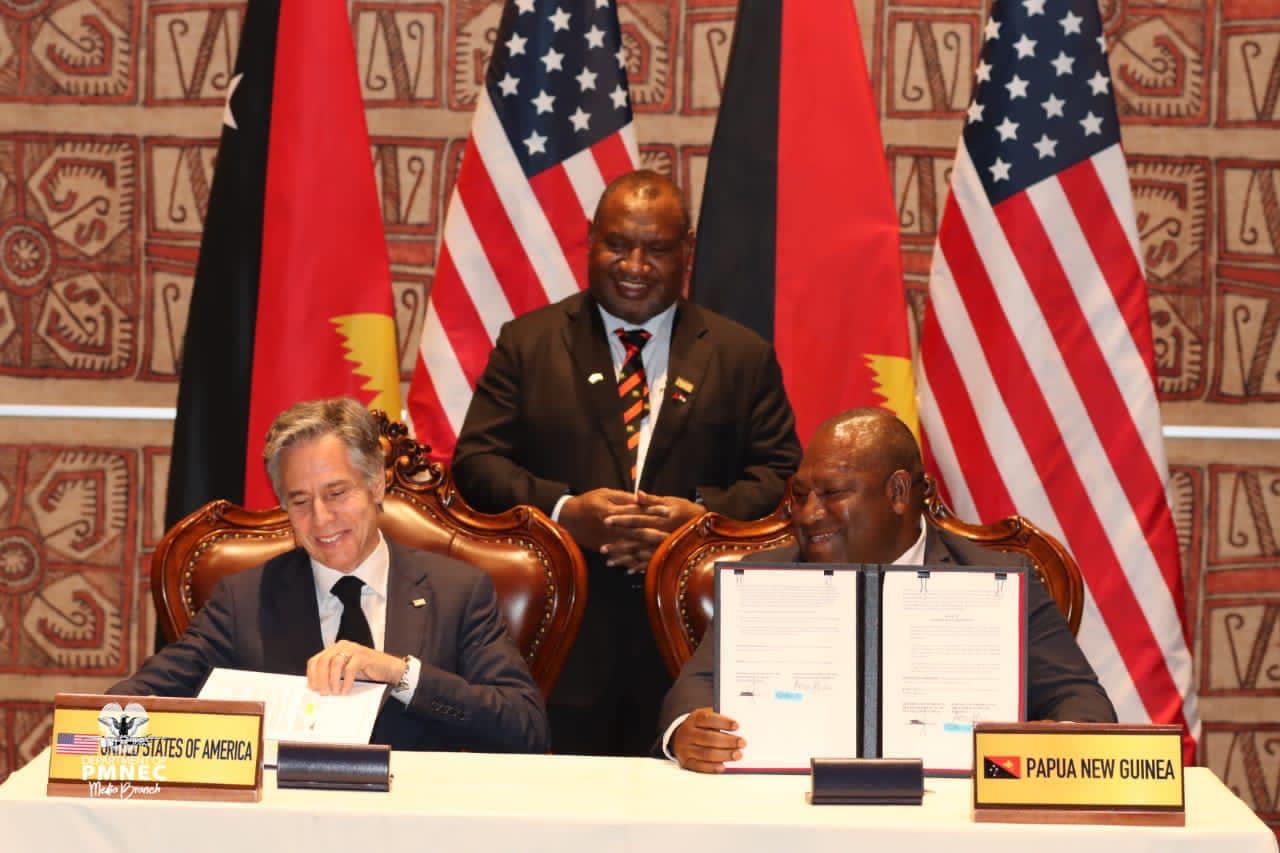The United States military has been given “unimpeded access” to key PNG defence facilities, including the joint PNG-Australia Lombrum Naval Base on Manus Island, as part of a sweeping Defence Cooperation Agreement.
The 15-year agreement has been made public for the first time since it was signed last month after it was tabled in PNG’s parliament.
Replacing a Status of Forces Agreement between PNG and the U.S, the Defence Cooperation Agreement (DCA) is intended to improve military cooperation between the two nations – but it’s generated a considerable amount of criticism domestically.
The agreement grants “unimpeded access” for “mutually agreed activities” to facilities including the Lombrum Naval base, the Port Moresby Seaport, as well as airports in Port Moresby, Lae and Momote.
That includes surveillance, reconnaissance activities, bunkering of vessels and the staging and deploying of forces.
Another contentious section of the agreement gives U.S authorities the “exclusive right to exercise criminal jurisdiction over U.S personnel.”
PNG retains civil and administrative jurisdiction over U.S personnel for “acts or omissions” in the country outside the course of official duty.
In parliament, PNG’s former prime minister Peter O’Neill raised the possible constitutional hurdles the agreement could raise.
The question of visiting personnel receiving “immunity” was tested in 2005, when PNG’s Supreme Court overturned the legal immunity given by the government to 150 Australian police in the country.
“I think parliament and government needs to take heed of this,” O’Neill said.
In tabling the DCA, Prime Minister James Marape again reiterated that the agreement did not grant any immunity for breaches of law in PNG.
When the agreement was signed, U.S Secretary of State Antony Blinken was asked whether China, and its defence pact made with the neighbouring Solomon Islands, was a factor in renewing ties.
He said the agreement wasn’t about “any other country.”
“This is grounded in … a shared vision that we have for a free and open Indo-Pacific.”
In a statement tabled to parliament with the DCA, Marape said PNG needed to “connect for peace and prosperity in a globalising world.”
“This, whilst being mindful of PNG’s friends to all and enemies to no one universalism standing, however, PNG must yet be actively and selectively engaging amongst those friends for its national interest, to maintain its territorial integrity and sovereignty independence.”
Marape also said that while the DCA set up a framework, any military activities would be subject to further agreements.
O’Neill raised concerns about the outcomes of the agreement, which has long been touted by the PNG government as a way for the PNG Defence Force (PNGDF) to receive training and skills.
“We know we need to rebuild our defence force, our navy and our air force, but it is not specifically mentioned in the agreement,” he said.
“We have to be specific, otherwise they’ll take it generally … and I can tell you we are not their priority.
“PNG is not in conflict with anyone, we are not at conflict with any of our neighbours, or the region for that matter.
“It is concerning we are allowing military to have free access into our country, creating unnecessary attention to PNG as a result of that.”
Debate on the DCA is ongoing, to be ratified by parliament at a later date.
Henry Ivarature, deputy director of strategic engagement at the Australian Pacific Security College, said he was “very concerned” about the agreement.
“U.S military has, it seems unrestricted access to the territory of PNG,” he told the ABC.
“The terms are so wide they encompass all areas of PNG.””
Dr Ivarature said aspects of the deal were “unbelievable”, particularly in regard to the level of access U.S personnel had to PNG under the deal.
“It reads to me as if PNG has sold itself and its sovereignty to the U.S,” he said.
“I also expect protests and public demonstrations once the public learn of the extent PNG has ‘potentially’ lost in terms of its territory and sovereignty in the agreement,” he said.
SOURCE: ABC PACIFIC/PACNEWS














